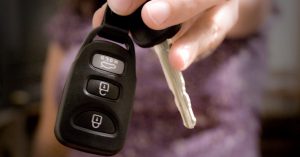 Shopping for a new vehicle means making dozens of decisions, from aesthetic choices like which color you prefer to settling on an engine and other performance features. But even before you dive into trims and packages, you must pick whether to lease or buy. The best option for you depends on several factors, from your budget to how much you plan on driving. Answer these questions to help decide if you should lease your next car.
Shopping for a new vehicle means making dozens of decisions, from aesthetic choices like which color you prefer to settling on an engine and other performance features. But even before you dive into trims and packages, you must pick whether to lease or buy. The best option for you depends on several factors, from your budget to how much you plan on driving. Answer these questions to help decide if you should lease your next car.
Do You Want to Own a Vehicle?
Leasing is beneficial for many reasons, but one drawback is that you don’t own the vehicle. Instead, you lease from a dealership and return the car when your contract ends. Unfortunately, you don’t benefit from positive equity and can’t resell a vehicle unless you own it.
What’s Your Monthly Budget Like?
Lower monthly payments are arguably the biggest benefit of leasing. In general, it’s always more affordable to lease. You also don’t have to take out a loan in this situation.
The monthly amount you must pay is only one financial benefit to consider. Leasing usually comes with a lower down payment. It’s even possible to waive a down payment when leasing, so you can leave the lot without opening your wallet. Sales tax is also less compared to buying a vehicle.
Maintenance costs are another benefit. Some lease agreements include free inspections and tune-ups, so ask about this when you visit a dealership.
Can You Live With the Lease Limits?
Leasing is a fantastic way to save money, and you get to look forward to upgrading to a newer vehicle once your lease is up. However, you have to stay within the parameters of your lease while driving. A few conditions to consider before signing include:
- The life of the lease: If you only want to drive the vehicle for a few years, leasing is a good option. Getting out of the agreement early can be impossible without paying a fine if you can’t sublease the vehicle. Subleasing might not even be allowed per your contract. Make sure you can meet the terms of your lease before signing.
- The mileage limits: Your lease agreement will limit the total miles you can drive. If you go over this amount, you’ll likely be charged a fee per mile driven over the maximum allowed amount. Drivers who travel a lot should be careful to negotiate a realistic mileage limit or should consider buying instead.
- Other restrictions: Your lease will include restrictions and clauses about numerous other things, such as what counts for normal wear and tear. If you violate these terms, you may be charged additional fees when your lease is up and you return the vehicle. So, think carefully about leasing if you feel at-risk of broaching wear-and-tear requirements.
Deciding on whether to lease or buy is only one step on the journey to your next vehicle. Visit Chestatee Ford for more information about leasing versus buying and to take a few of your favorites for a test drive around Dahlonega, Georgia.
New Car via Flickr by Caitlinator / Permission given by CC BY 2.0


